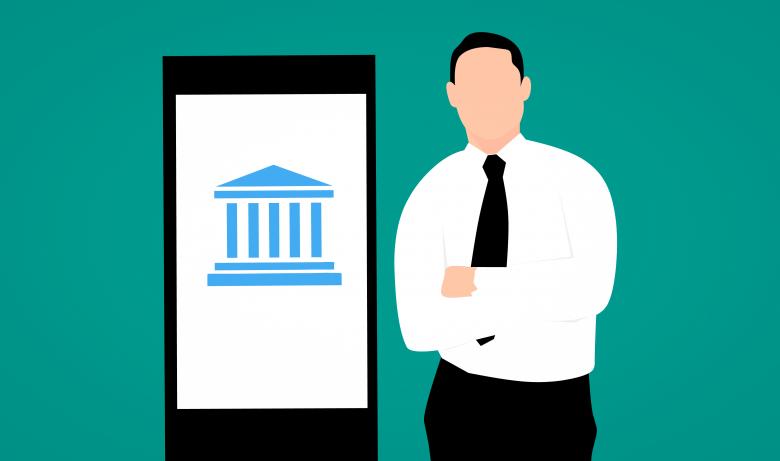Navigating the world of personal finance can seem daunting, with digital innovations and complex jargon often making banking feel intimidating. However, beneath the surface, robust consumer protection frameworks are working tirelessly to ensure your money, privacy, and peace of mind remain safeguarded. In this comprehensive guide, we’ll break down everything you need to know about consumer protections in banking — from the regulations that shield your savings, to your rights as a banking customer, and how you can benefit from these essential safeguards.
Why Consumer Protections Matter in Banking
Banks hold more than just your money — they hold your trust. Without stringent consumer protections, this trust would quickly erode. Financial institutions interact with millions of customers daily, processing billions in transactions. In such a landscape, mistakes, fraud, and unfair practices could spell disaster for individuals.
Consumer protections in banking are designed to:
- Prevent deceptive practices
- Guard against fraud and theft
- Ensure transparency in fees and services
- Provide clear avenues for dispute resolution
- Foster confidence in the financial system
Additionally, strong protections support financial inclusion, making it safe for everyone, including vulnerable populations, to access essential banking services.
Key Regulations and Laws Safeguarding Consumers
1. Truth in Savings Act (TISA)
The Truth in Savings Act mandates that banks clearly disclose terms and conditions of deposit accounts, including fees, interest rates, and annual percentage yield (APY). This transparency empowers you to make informed decisions and compare products without hidden surprises.
2. Electronic Fund Transfer Act (EFTA)
Digital and card-based banking are now the norm. The EFTA, and its primary provision, Regulation E, establish your rights regarding electronic transfers, such as ATM withdrawals, debit card transactions, and direct deposits. They limit your liability in case of lost or stolen cards, provided you act within specified timeframes.
3. Fair Credit Billing Act (FCBA)
For those using credit cards, the FCBA safeguards against unauthorized charges and billing errors. If you spot a suspicious transaction, you’re entitled to dispute it and avoid payment on fraudulent claims.
4. Fair Credit Reporting Act (FCRA)
Your credit report impacts your ability to borrow and secure favorable rates. The FCRA ensures your right to accurate information, access to your credit file, and a process to correct any errors. Banks must follow stringent guidelines with your credit data.
5. Bank Secrecy Act (BSA) & Anti-Money Laundering (AML) Laws
While these laws primarily aim to prevent financial crimes like money laundering, they also play a crucial role in preventing terrorism financing and fraud that could impact individual consumers. Enhanced monitoring protects your accounts from criminal abuse.
Core Consumer Rights in Banking
Understanding your rights can make all the difference in troublesome financial situations.
Right to Information
Banks are required to provide clear, understandable information about fees, interest rates, loan terms, and changes to account agreements. You have the right to request this information at any time, ensuring you aren’t left in the dark.
Right to Privacy
Financial institutions must safeguard your personal data. Laws like the Gramm-Leach-Bliley Act require banks to inform you about how they collect, share, and protect your information — and give you certain options to limit data sharing.
Right to Fair Treatment
Discrimination in banking is strictly prohibited. Equal opportunity laws ensure you can access loans and services without regard to race, gender, age, religion, or other protected characteristics.
Right to Redress
If something goes wrong — whether it’s an unauthorized transaction, a fee you didn’t agree to, or an error on your statement — you have the right to file complaints and expect timely resolutions.
How Banks Implement Consumer Protections
With all these regulations, how do banks put them into practice day-to-day? Let’s look behind the scenes at some proactive strategies and systems in place.
Secure Transaction Technologies
Modern banks use layered security measures such as two-factor authentication, biometric verification, and encrypted communications to ensure your transactions are safe from hackers and fraudsters.
Internal Compliance Departments
Banks employ dedicated teams who monitor adherence to regulations and internal policies, reducing the risk of misconduct and ensuring issues are resolved swiftly and transparently.
Customer Support and Education
You’ll find resources like FAQs, interactive tutorials, and hotlines specifically for reporting fraud or disputes. Many banks also provide financial literacy content, empowering customers to spot potential scams early.
Reporting and Monitoring
Banks are required to monitor for suspicious activity (e.g., large or unusual transactions) and report them to authorities. This vigilance helps catch fraud before it impacts your account.
Common Financial Scams (and How Protections Help)
Consumer protections are especially important in combating the ever-evolving landscape of financial scams. Here are a few you should be aware of:
- Phishing attacks: Scammers often impersonate a bank to trick customers into sharing sensitive information.
- Account takeover fraud: Unauthorized parties gain access to your online account.
- Unauthorized charges and card skimming: Criminals can steal card data and make fraudulent purchases.
Your bank’s fraud detection systems, combined with legal protections, help block suspicious activity and ensure you aren’t held responsible for losses if you act quickly.
Your Role in Protecting Yourself
While laws and banks provide multiple layers of defense, you also play a key part. Here’s how you can proactively protect your finances:
- Regularly review your statements and transaction history.
- Report lost cards or suspicious activity immediately.
- Use strong passwords and update them frequently.
- Enable alerts for unusual activity.
- Educate yourself about common banking scams.
Resolving Disputes and Filing Complaints
If you ever encounter an issue with your bank, follow these steps:
- Contact your bank: Most disputes can be resolved quickly through customer service.
- Gather documentation: Keep copies of all correspondence, receipts, and statements.
- Escalate if needed: If unsatisfied, escalate the complaint within your bank or contact a regulatory body such as the Consumer Financial Protection Bureau (CFPB).
- Seek alternative dispute resolution: Mediation or arbitration can also resolve complex disputes outside the courts.
The Future of Consumer Protection in Banking
As digital banking grows and fintech innovations in areas like artificial intelligence and blockchain transform money management, consumer protection laws must evolve too. Regulators around the world are constantly updating rules to address new risks — from data breaches to algorithmic decision-making.
Consumers can expect a focus on:
- Enhanced cybersecurity standards
- Clearer consent for data usage
- Protections for digital currencies and mobile banking apps
- Continued education on financial literacy
Conclusion
Consumer protections in banking are more than just a safety net — they’re the backbone of a fair, transparent, and trust-driven financial system. Empowering yourself with knowledge about your rights and responsibilities will keep your finances secure and your confidence high, no matter how the industry evolves.
Your financial safety starts with awareness. Stay alert, stay informed, and enjoy the peace of mind that comes from knowing you’re protected. If you’re not sure about your bank’s policies, ask questions or review their consumer protection resources today.
Ready to take charge of your financial well-being? Share this article, review your bank’s consumer protections, and empower someone else with knowledge!






